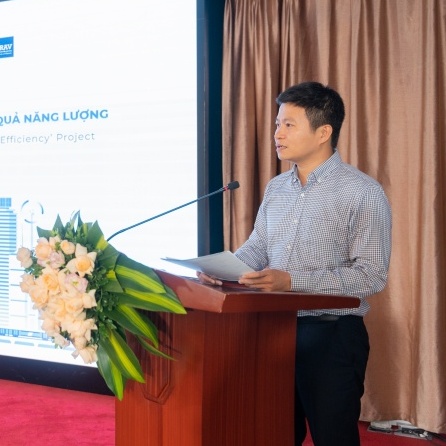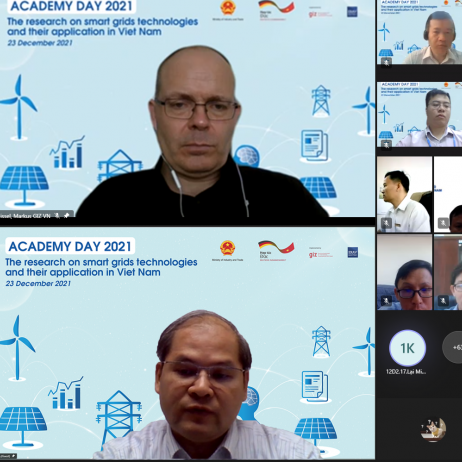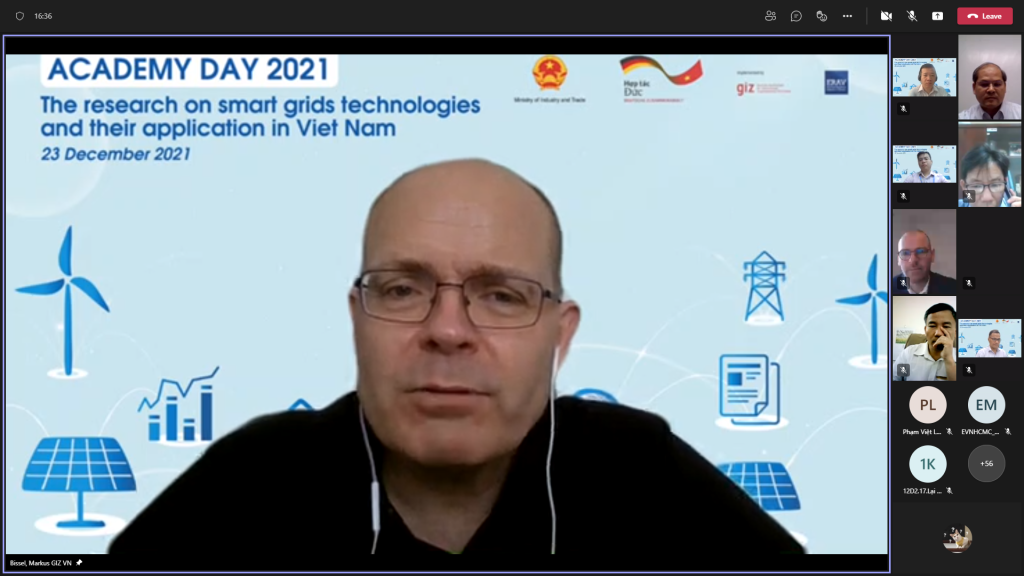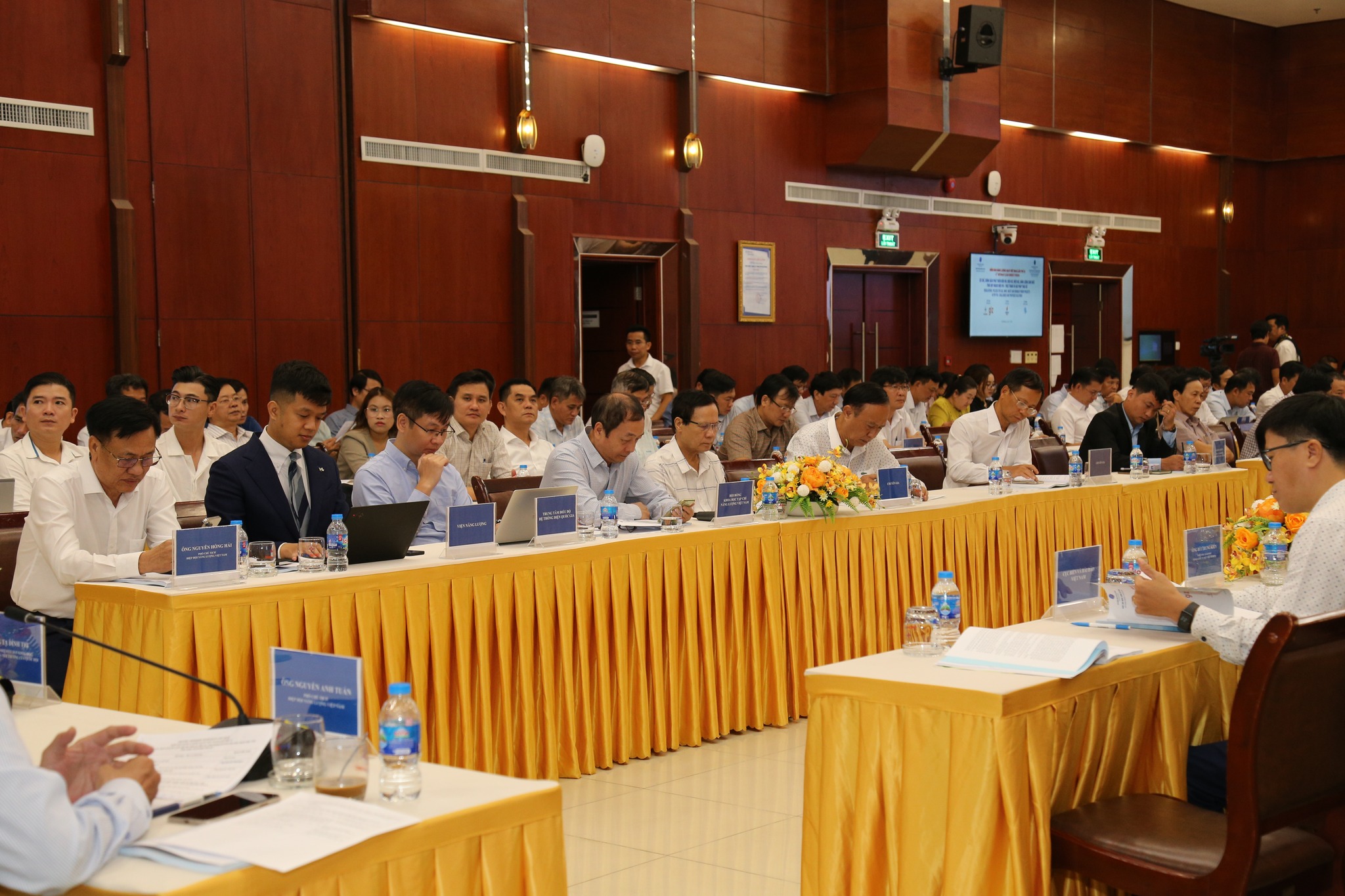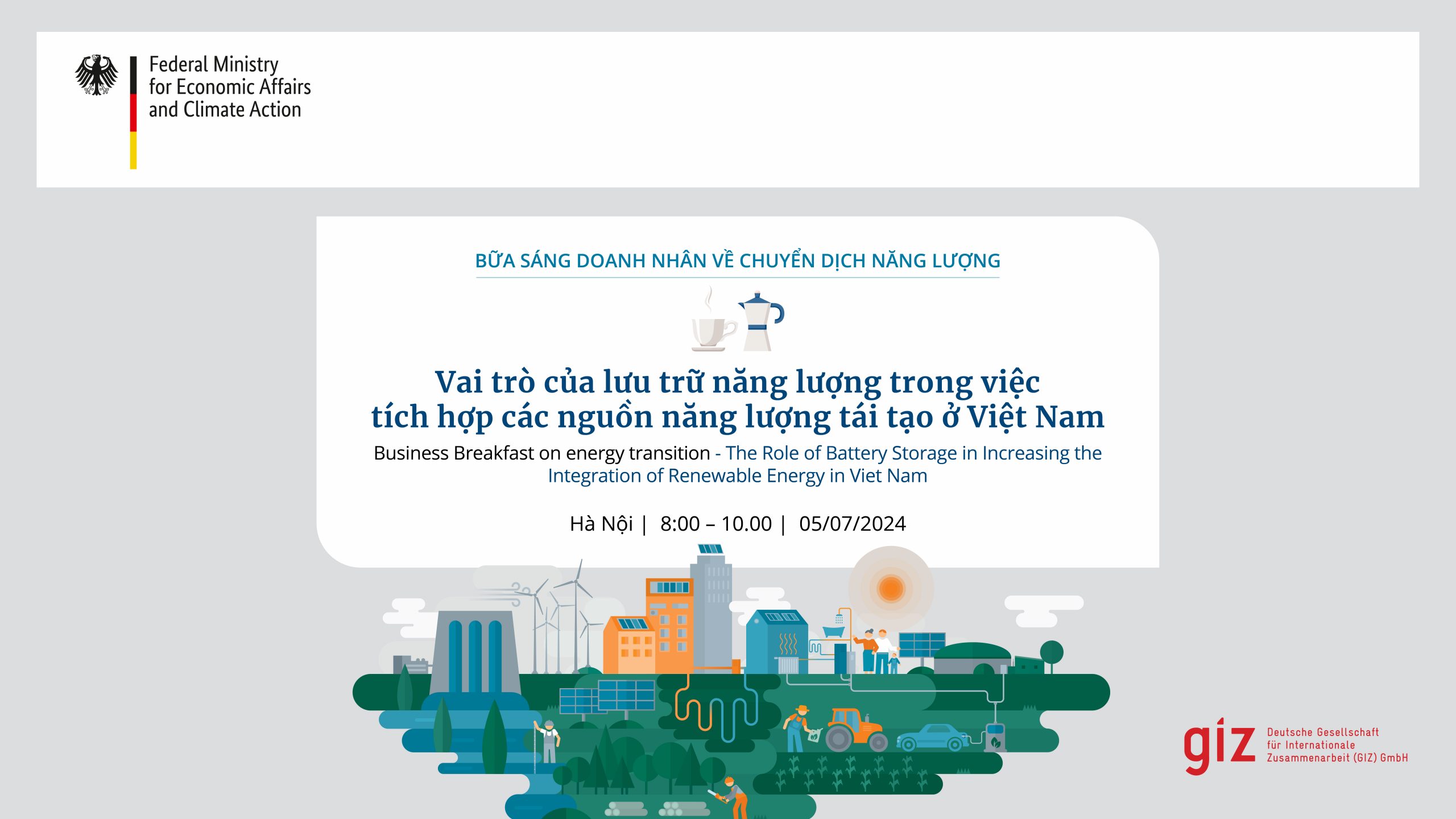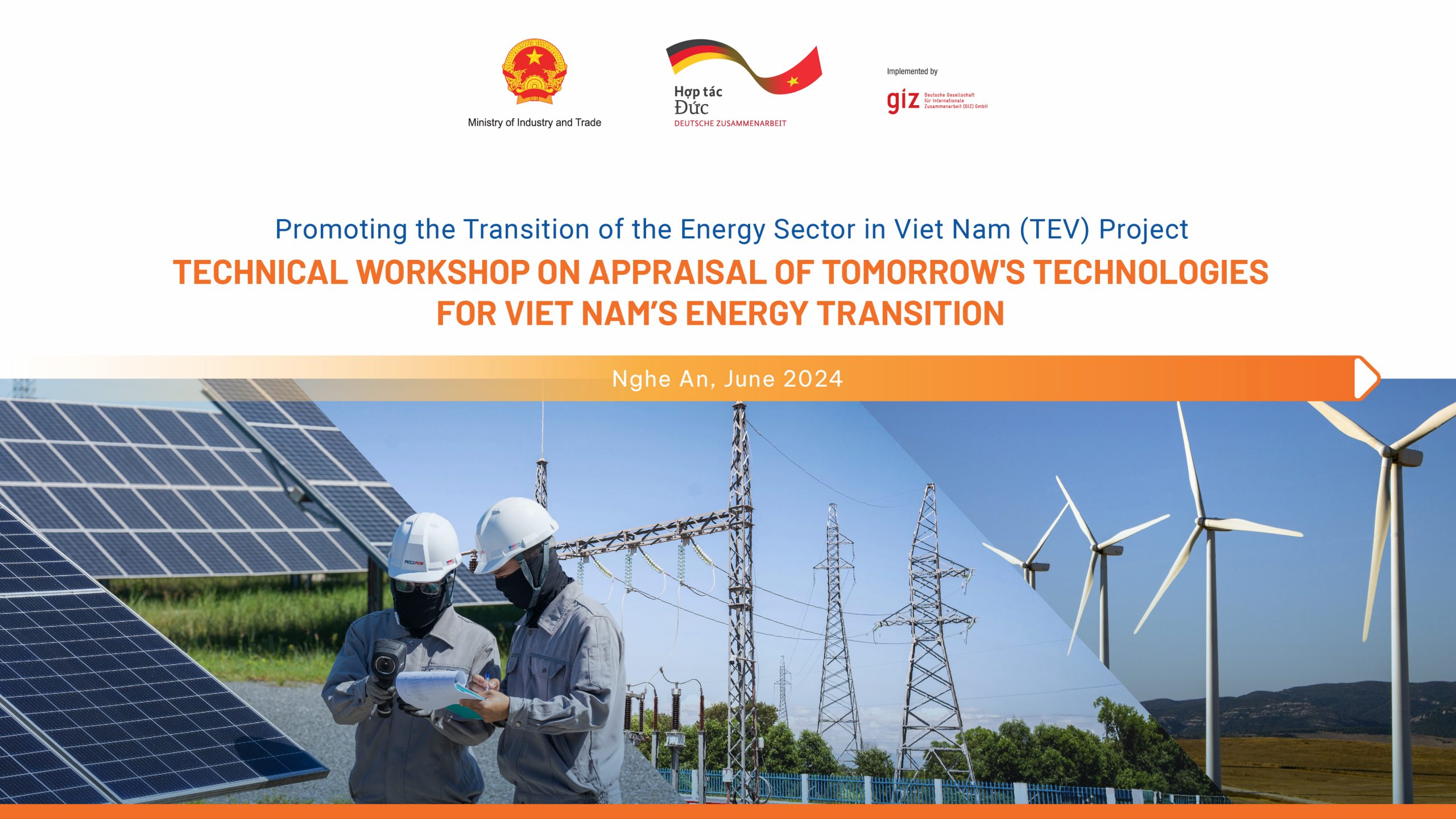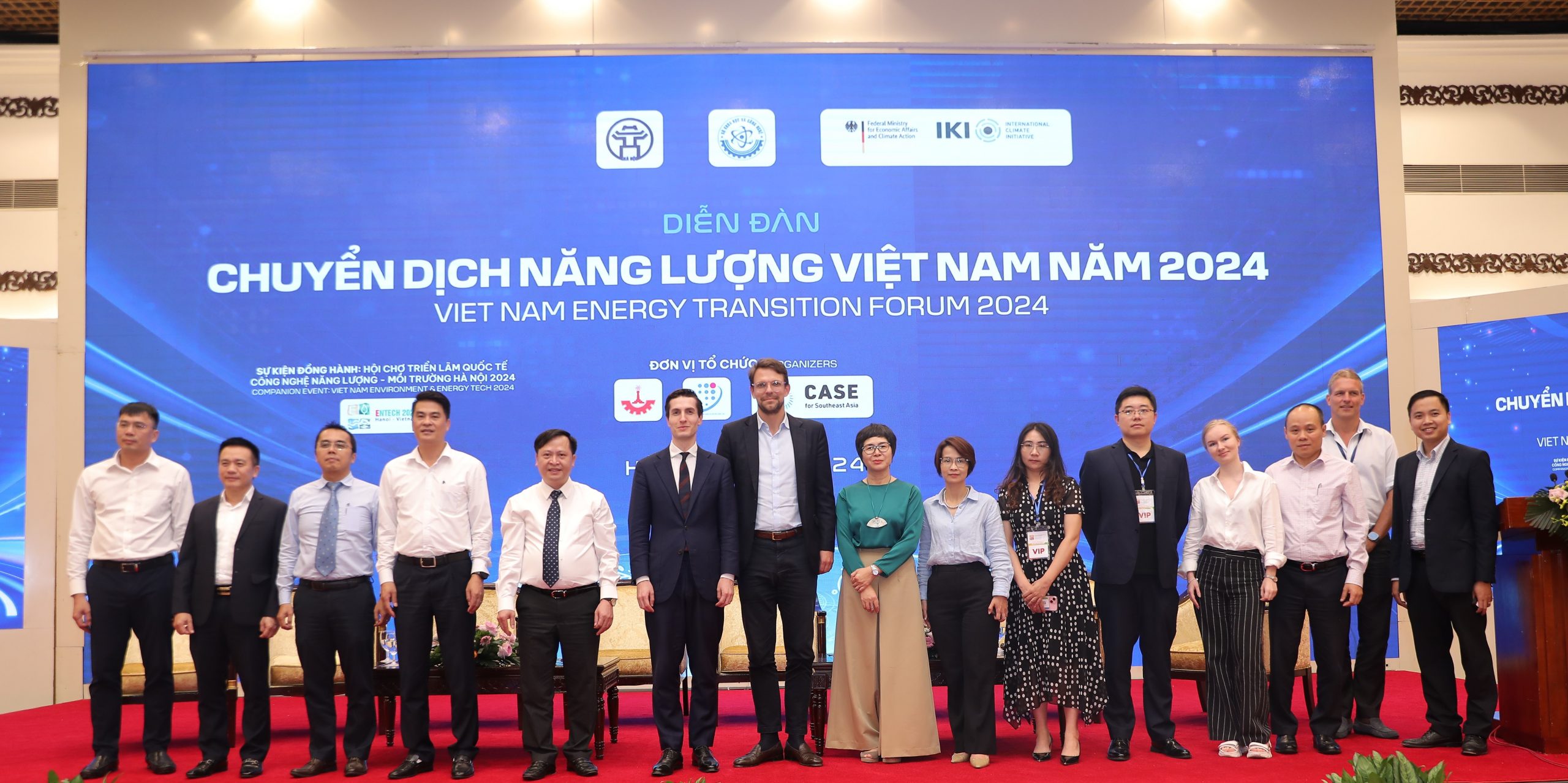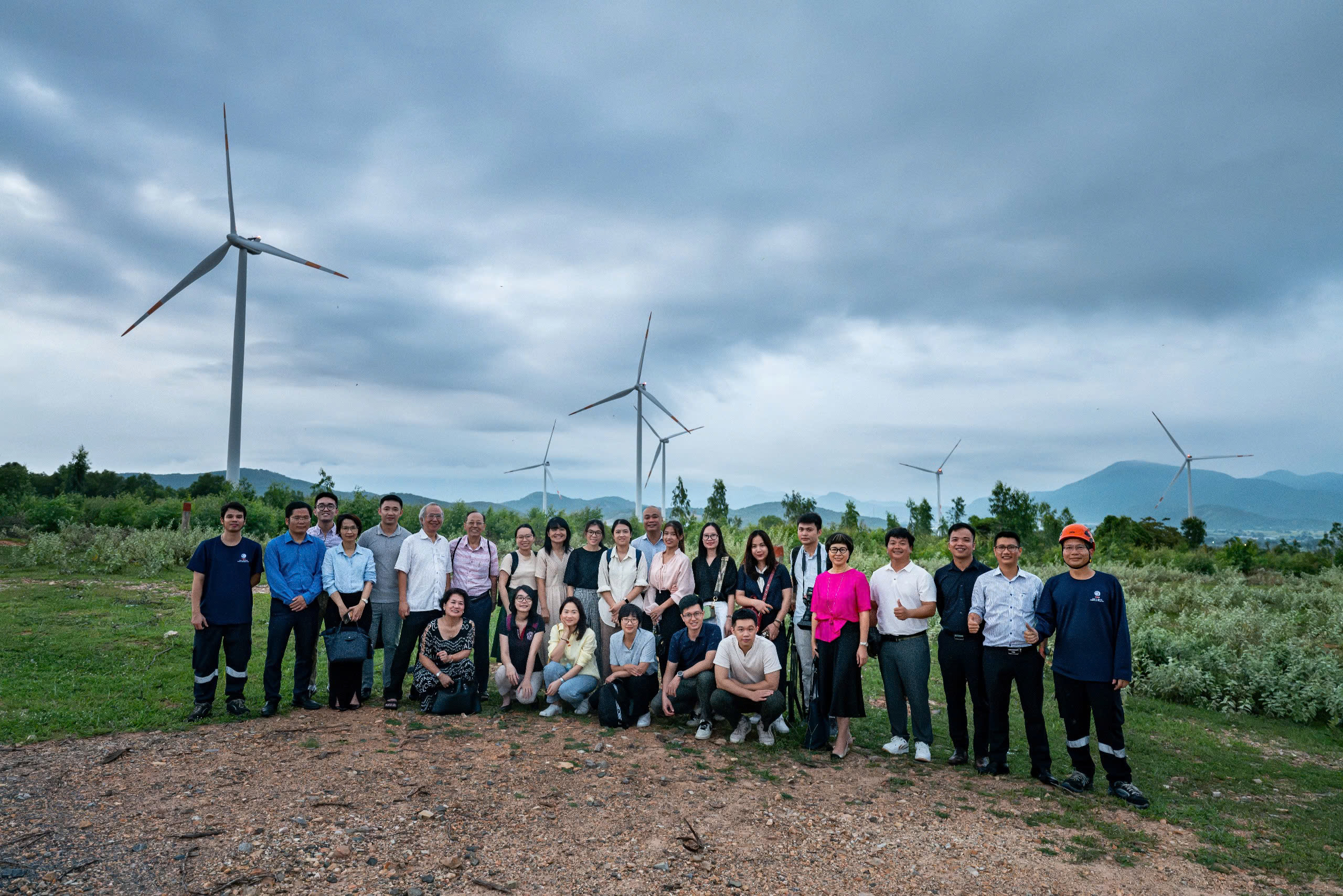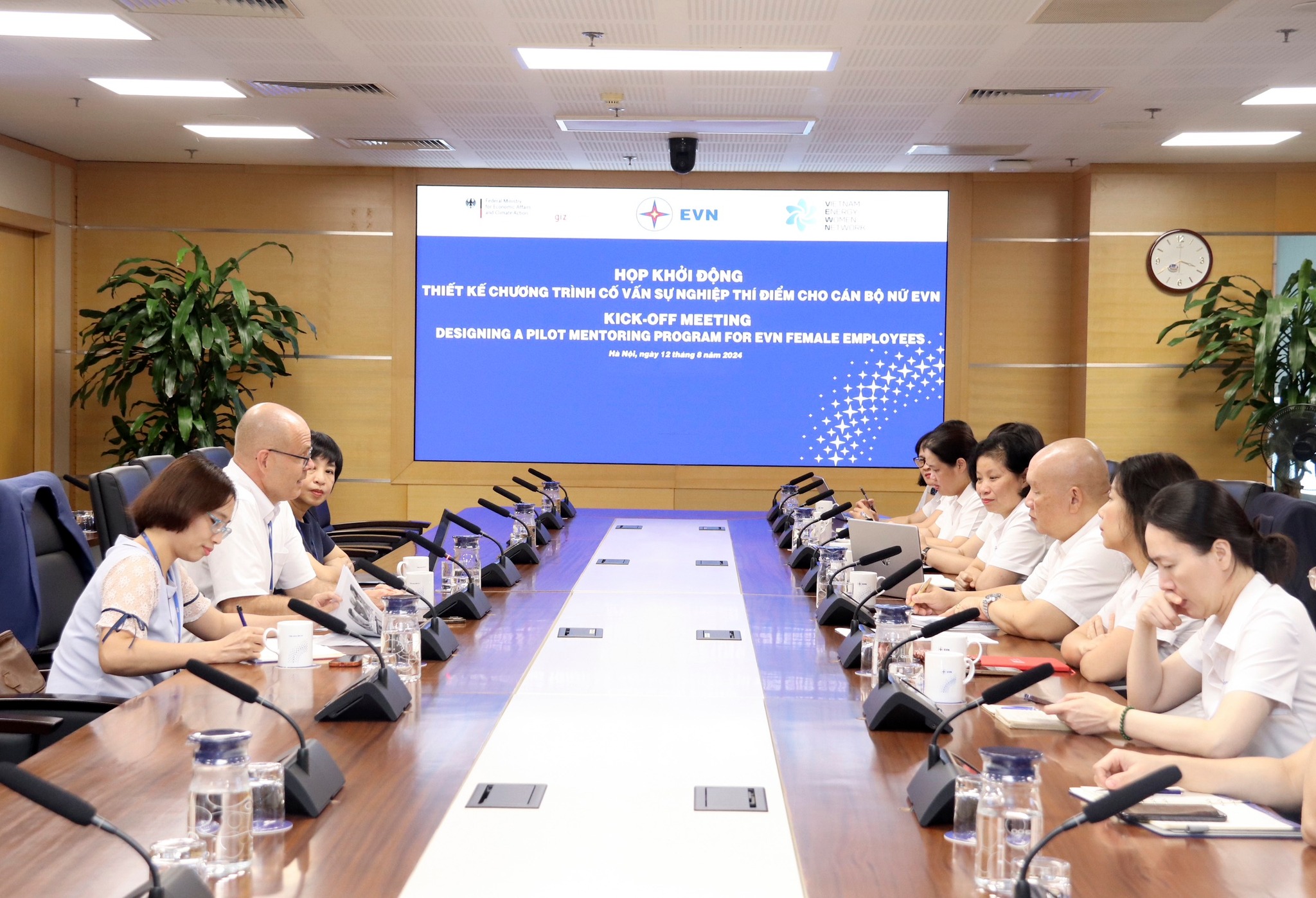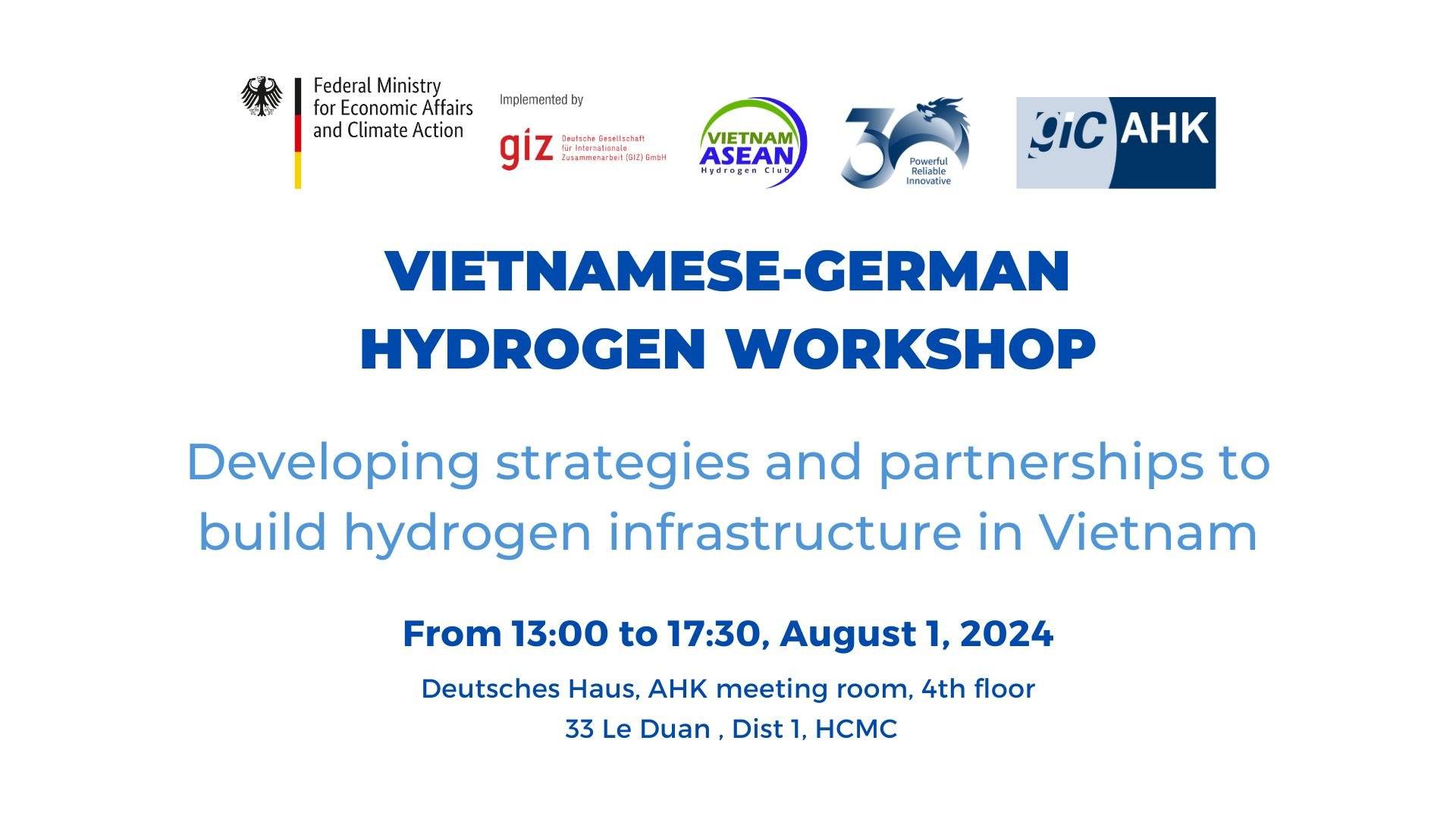To update its Smart Grid Roadmap to ensure the sustainability of the country’s electricity grid network, Viet Nam should take measures on eight Smart Grid indexes (SGIs). The indicators are green energy, energy market, supply reliability, data analytics, monitoring and control, customer satisfaction, cybersecurity, and integration of distributed energy resources.
Those recommendations were presented at the virtual event on 15 March, which is the final one among a series on the topic. The Electricity Regulatory Authority of Viet Nam (ERAV) of the Ministry of Industry and Trade (MOIT) and the Deutsche Gesellschaft für Internationale Zusammenarbeit (GIZ) GmbH co-hosted the activity.
With the fast-growing economy, Viet Nam has seen the rapidly increasing electricity demand over the past years. Meanwhile, the share of renewable energy, especially solar energy, has increased significantly in the nation’s power production. The transition of the power sector, however, is challenging the grid management, causing supply-demand risks, despite the government’s constant investment in power generation and grid infrastructure.
Recognising the importance of upgrading the national power transmission system, the Government of Viet Nam signed Decision No. 1670 / QD-TTg on November 8, 2012, approving a strategy on developing Smart Grid in Viet Nam (in short: Smart Grid Roadmap). The roadmap sets a general target for Smart Grid to improve system reliability through demand-side management and energy efficiency measures. The plan, however, needs to be updated as Viet Nam has witnessed a significant increase on renewable energy and a number of policy changes.
At his opening remarks, Mr. Markus Bissel – Director of GIZ’s Smart Grids for Renewable Energy and Energy Efficiency (SGREEE) Project – said, ‘What our experts presented today will provide the audience with an in-depth analysis, detailed assessments and concrete proposals to the revision of Viet Nam’s Smart Grid Roadmap. The adjustment will therefore improve the performance of the country’s power sector, reduce the need of investment into the networks and encourage a more efficient integration of renewable energy sources.’
The workshop welcomed representatives from affiliated entities under the MOIT, other ministries and government agencies who are members of the national Smart Grid Steering Committee, the Vietnam Electricity, the National Load Dispatch Center, the Regional Load Dispatch Center, power corporations, power generation companies, power companies, the Vietnam Electrical Engineering Association, power construction consulting firms, other associations, research institutes, universities, international organisations and private companies.
At the workshop, a group of local experts from BK-Contech company presented their comprehensive research on assessing the Viet Nam’s Smart Grid development, identified current and future challenges facing the Vietnamese electricity system. Based on that, international experts presented SGIs-based evaluating result of Viet Nam’s Smart Grid development progress with benchmarking of best practices from South Korea?, Japan, Australia?, the US and the UK, using dedicated evaluation tool, before they put forward practical recommendations to Viet Nam.
After the presentations, the audience engaged in detailed discussions, in which their comments and views would be considered from the experts to finalise their study.
During the discussions, Mr. Duong Manh Cuong – Senior Project Officer of the SGREEE project – emphasised that among the recommendations, it is needed to extend the applications of distribution management systems (DMS) and advanced distribution management systems (ADMS) to include applications for switching schedules, safety management and load shedding, as well as to promote potential cooperation of transmission system operators (TSO) and distribution system operators (DSO) for congestion management, voltage support, balancing and ancillary services.
In addition, Cuong said that the Smart Meter roll-out with critical functions should be speed-up to create solid foundation for deployment of other programs, such as Demand Response, Data Analysis-Based monitoring, scheduling and controlling.
The workshop was part of the SGREEE Project, which is jointly implemented by ERAV of the MOIT and GIZ. The project is funded by the German Federal Ministry for Economic Cooperation and Development (BMZ).
GIZ – on behalf of the German Government – has implemented the SGREEE Project since 2017 to support the Vietnamese Government. Under the project, the “Smart Grid Viet Nam Knowledge Hub” http://smart-grid.vn/ and the “Smart Grid Viet Nam Network” Facebook group https://www.facebook.com/groups/smartgridvn were created.
The former is one of the country’s first public platforms on the topic, sharing concepts, solutions, experience, development progress and official documents related to smart grid applications in the country. With more than 850 members, the latter provides a forum for national and international experts to discuss and share their professional experience about smart grid solutions, its applications and trends in the country and worldwide.
To read and download the presentations, please follow the links below.
1. Introduction to the scope and goals of the assignment & evaluation methodology
2. Task 1. A Comprehensive Assessment of Smart Grid Development in Vietnam
3. Task 2.1. International Best Practice on Smart Grid Roadmap
4. Task 2.2: Evaluation & Recommendation for Improvement of Smart Grids Road Map




